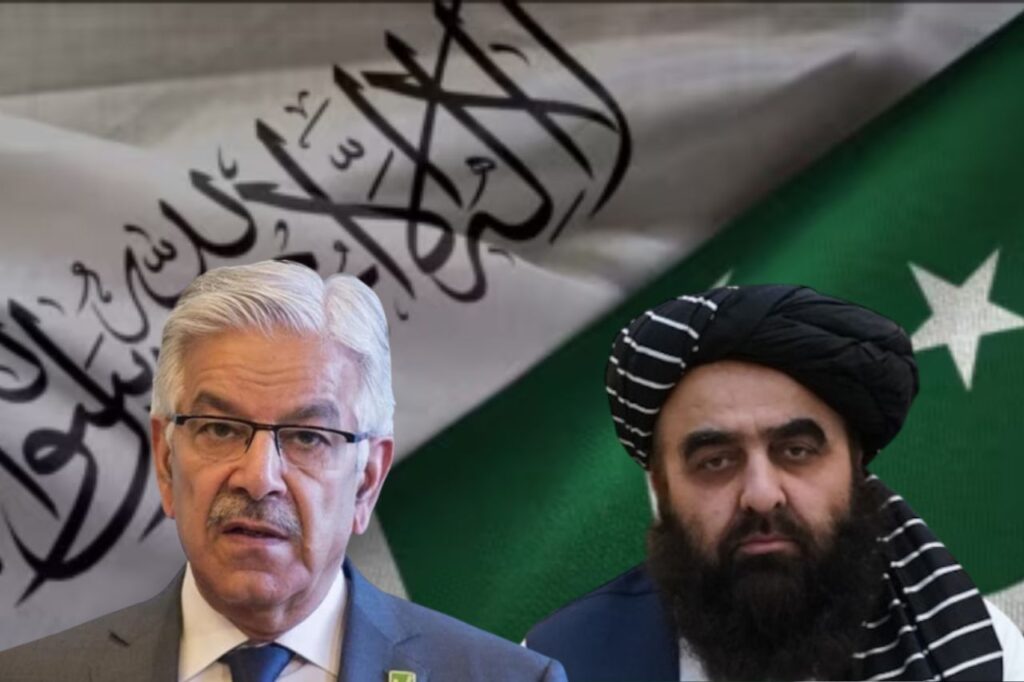ISLAMABAD: This month alone, Pakistani security forces had killed around 200 terrorists while thwarting an infiltration attempt to enter Pakistan from Afghanistan.
These incidents underscored Pakistan’s firm resolve to defend its borders without compromise. The operation reflected the nation’s unwavering commitment to crush terrorism through courage, unity, and sacrifice.
Despite ongoing Pakistan-Afghanistan talks in Istanbul, infiltration attempts by the Indian-backed militant network Fitna al-Khawarij continue. Officials say diplomacy alone cannot ensure peace unless Afghanistan takes concrete steps to prevent the use of its soil for attacks against Pakistan.
Islamabad has repeatedly expressed concern that the Afghan Taliban are pursuing “a different agenda” while turning a blind eye to cross-border militancy. Analysts warn this agenda undermines regional stability and must be exposed.
Pakistan’s ties with Kabul remain strained as attacks by banned outfits like Tehrik-e-Taliban Pakistan (TTP) and the Baloch Liberation Army (BLA) intensify. Both groups reportedly maintain safe havens and operational links across the border.
Islamabad says the Taliban’s reluctance to act against these groups has widened the trust deficit between the two neighbors. The 2,600-kilometer border remains the central issue defining their uneasy relationship.
The 2020 Doha Agreement between the United States and the Taliban promised that Afghan soil would not be used for terrorism. However, the accord excluded Pakistan and failed to address the TTP threat directly. Islamabad played a facilitating role in hopes of regional peace, but its expectations soon faded.
A July 2024 UN report revealed that the Taliban do not classify the TTP as a terrorist group and maintain “close ties” with it. The report estimated between 6,000 and 6,500 TTP fighters currently based in Afghanistan, with Al-Qaeda elements providing operational support for attacks inside Pakistan.
The report noted a steady rise in TTP-led assaults, most targeting Pakistan’s security forces and Chinese infrastructure projects. The TTP leadership, mostly based in Afghanistan, continues to plot attacks from across the border.
Public anger against the group is widespread, especially in Pakistan’s Pashtun belt. Once seen as sympathetic pockets, these communities have turned against the militants, organizing protests and resistance movements since 2021.
However, the TTP and its backers—reportedly supported by India—remain active, attempting to reignite violence in Khyber Pakhtunkhwa and Balochistan. Afghan Taliban factions continue to shield them, using the group as a lever in their regional strategy.
A powerful faction within the Taliban considers TTP fighters part of the broader jihadist movement and resists action against them. The Haqqani Network, in particular, maintains close ties with the TTP and opposes any crackdown.
Rivalries among Taliban factions in Kandahar and Kabul further complicate the issue, as groups compete for resources and influence over the TTP. These divisions, observers say, will likely intensify, not resolve, internal power struggles.
Amid growing repression inside Afghanistan, Taliban leaders have little to offer their 40 million citizens besides coercion. Yet, popular discontent and underground resistance are beginning to surface across the country.
Regional experts warn that nationalist ideologies are fading, replaced by ethnic rivalries and power politics. Such dynamics serve the ruling elite but deepen Afghanistan’s isolation and instability.
Diplomacy and mediation are vital for trust-building, but peace cannot rest on hypocrisy. When a state promotes peace publicly while supporting covert aggression, it erodes regional confidence and invites escalation.
A foreign policy rooted in duplicity cannot endure. It fuels mistrust, disturbs strategic balance, and opens new fronts of confrontation.
This is where the role of the international community becomes critical. Mediators must ensure compliance with peace terms, not just organize photo-ops and signatures. Effective monitoring mechanisms are essential when either party violates agreed commitments.
Analysts argue that Afghanistan’s interim Taliban government appears driven by its own agenda rather than regional peace. If Kabul continues to provide sanctuary to anti-Pakistan groups or allows itself to be used as a proxy, regional stability will remain at risk.
True mediation, experts say, requires addressing the root causes of conflict—through security cooperation, economic integration, and social inclusion. If Afghanistan genuinely seeks peace, it must ensure transparency, federal inclusiveness, and decisive action against non-state actors.
Otherwise, the region faces the danger of hidden agendas masquerading as diplomacy—undermining South Asia’s collective peace, prosperity, and future stability.
This year until September, Pakistan’s military killed 917 militants, including 126 Afghan nationals, in more than 10,000 counterterrorism operations across Khyber Pakhtunkhwa this year, as part of an intensified campaign to eliminate terrorist networks in the country’s northwest.





